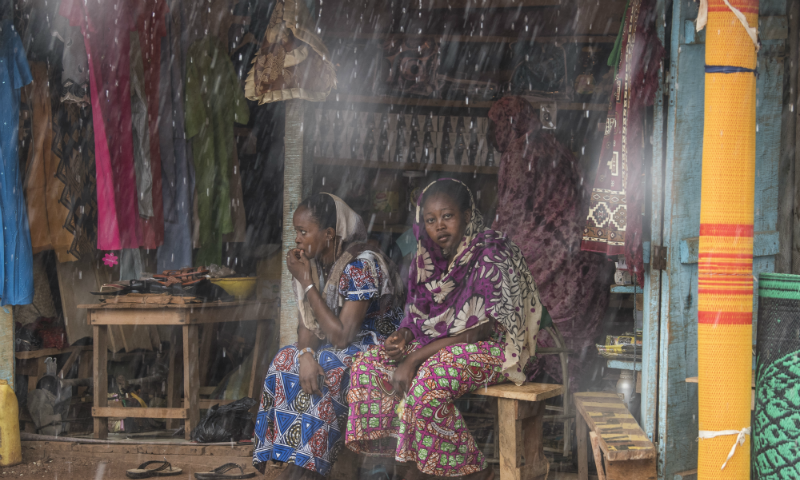
“Wake up, Monsieur le Comte! You have great things to do.” Those are the words, which, uttered by his personal valet every morning, would rouse the celebrated 19th century thinker, Henri de Saint Simon. But for most of us, struggling to wake up in time for school or work, or leaving home at daybreak to reach a far-away well, greatness is not the first thing on our minds.
Overwhelmed by our daily struggles, some of us might not feel equipped to take on something as immense as the Sustainable Development Goals (SDGs) – 17 objectives to overcome some of the greatest challenges facing humanity today.
The SDG Advocates – 17 exceptional personalities from the worlds of politics, economy, advocacy, sports and show business – see things differently. At the end of September, many of them attended the high-level week of the UN General Assembly and the SDG Media Zone, convincing everyone, from world leaders to youth activists, that we all have a role to play.
“The big thing about the Sustainable Development Goals is that they’re for everybody and they’re about everybody,” says SDG Advocate, director and screenwriter, Richard Curtis. “Our governments have made a promise that they will find solutions to the things you care about, so when you’re fighting at your most local level you’re a part of a huge global fight and you can apply the global muscle to that local level.”
“Today’s young people are the most powerful generation in human history,” says SDG Advocate and Nobel Prize‑winning economist, Professor Muhammad Yunus. “The question is: what do they want to do with that power? If you don’t use that power, it will be wasted. You can re-design the whole world in the way you can imagine it. Your capacity is to do massive things, mega-things, so think big!”
These positive calls to action, uplifting as they are, are often drowned out by the narrative of hopelessness dominating the media. How can we remain hopeful with stories of climate change, extreme weather disasters and nuclear warfare making the headlines every day?
“One of the things is to know that the good news won’t be at the front of the newspapers, but not to lose faith in the fact that it’s happening,” says Richard Curtis.
“But the reality is, what we see on TV is what we know,” says SDG Advocate Alaa Murabit, medical doctor and activist. “And we know that people are suffering from climate change, that people are suffering from injustice around the world. I say to young people: ‘Use that as fuel. Recognize that the current system, the current way, in which we engage globally, is not working and we need young people. We need new ideas.’”
“You just can’t watch the politicians all the time,” says renowned economist and SDG Advocate, Professor Jeffrey Sachs. “The truth is, there are a lot of solutions around. Poverty came down a lot, the disease burden faced by very poor people came down a lot, many areas of progress were made. The Sustainable Development Goals say: ‘Finish the job! End extreme poverty, end hunger, obtain 100 per cent access to healthcare, 100 per cent access to quality education!’”
“Ignore all those problems,” urges Professor Yunus. “Create the world that you want! In the process, these problems will disappear. If you’re trying to fix these enormous problems, you’ll never get out of it. They’ll suck you in. You do the things that you want! Work for the kind of world you want.”
“The world has had eight years of formidable international convergence. It gave us the Paris Agreement and the 2030 Agenda,” says UN Assistant Secretary-General at UN DESA, Thomas Gass. “But all this started with the financial crisis. The world has had crises and difficulties before, but we don’t build a lighthouse for sunny days. Now we have something that was built during a time of international convergence and strength. And we need to use it to create a ratchet effect to not go back. That’s what is important and that’s what is already happening.”
“A good SDG Advocate is someone who understands how the Sustainable Development Goals are different from a ‘classic’ development strategy, who understands what happened on the 25th of September 2015 when the leaders adopted this shared vision for humanity,” adds Mr. Gass.
Ambassador Dho Young-Shim, chief of the UN World Tourism Organization’s ST-EP Foundation and SDG Advocate sums it up: “At the end of the day, it’s our world and nobody can be exempted. We breathe the same air, drink the same water, we face the same challenges. It’s not yours versus mine. It’s our world.”
For more information:
Source: UNDESA Voice
 Welcome to the United Nations
Welcome to the United Nations